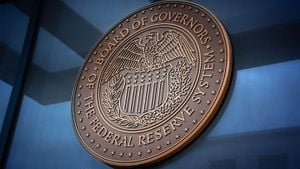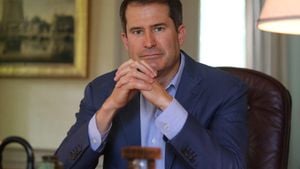With the recent announcement of increased National Insurance (NI) contributions by the UK Treasury, the economic ramifications are igniting major concerns across sectors, particularly healthcare. The policy, which is set to take effect soon, has stirred up debates over its wider impacts on businesses, jobs, and the availability of services like GP appointments.
The latest figures reveal the government intends to boost employers’ NI contributions from 13.8% to 15%, which critics argue could deepen financial struggles for businesses already grappling with rising operational costs. For many, it feels like the government is adding fuel to the fire of economic turbulence rather than extinguishing it.
One of the loudest warnings came from key players within the hospitality sector. Simon Emeny, chief executive of the pub group Fullers, made headlines when he spoke out against the anticipated NI increases. He noted, "We won't be able to afford to just take the £8 million hit to the bottom line, so there will be price increases and it will be inflationary." Expect to see the cost of your favorite pint rise by around 10p, rather than the previously anticipated decrease due to the recently proposed freeze on alcohol duty.
This warning reflects the feelings of many who believe the increased tax burden will lead businesses to cut jobs, compromise quality of service, and even shut doors altogether. Emeny is particularly concerned about how these changes will adversely affect regular customers who may already be feeling pinched by increased prices across the board. His statement emphasized, "For government policies intended to stimulate economic growth, this will do the exact opposite."
But the impacts go beyond just the pub industry. A Liberal Democrat analysis highlights severe repercussions for local healthcare services as well. Reports indicate the rise could threaten 22,857 GP appointments across Oxfordshire due to the heightened costs of maintaining practices. Liberal Democrat MPs have urged the government to reconsider and exempt healthcare providers from these burdensome changes. They claim, "This GP penalty will only make it harder for people in Oxfordshire to get appointments when thousands are already struggling to do so."
Beyond the direct impact on healthcare access, the budget's proposal has also drawn the attention of major political figures. Shadow Chancellor Mel Stride expressed frustration over the government’s messaging, calling out what he described as 'dubious' claims related to the NI hike and questioning the transparency of government communications. Stride insisted the hour was dire to uphold accurate records, saying, "I hope all government ministers will now correct the record accordingly."
The proposed increase also draws ire when viewed alongside the planned incremental raises to the National Living Wage. Scheduled to advance from £11.44 to £12.21 per hour for those 21 and over by April 2025, the raises are expected to place additional strain on businesses as they attempt to balance operating costs with labor expenses.
James Murray, the Treasury Minister, attempted to paint the situation positively, asserting the government is protecting workers’ payslips by not raising income taxes. He stated, "The Government is protecting working people’s payslips by not increasing the basic, higher, or additional rates of income tax or employee National Insurance contributions." While this may seem reassuring, the reality for many working-class individuals could be much more complex, especially when taxes on employers could lead to higher overall costs for employees.



